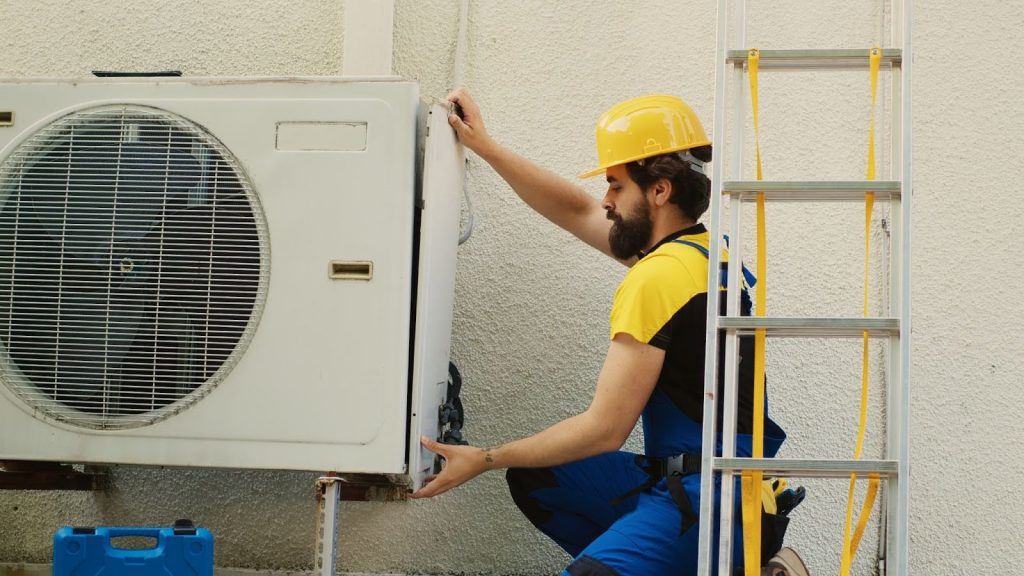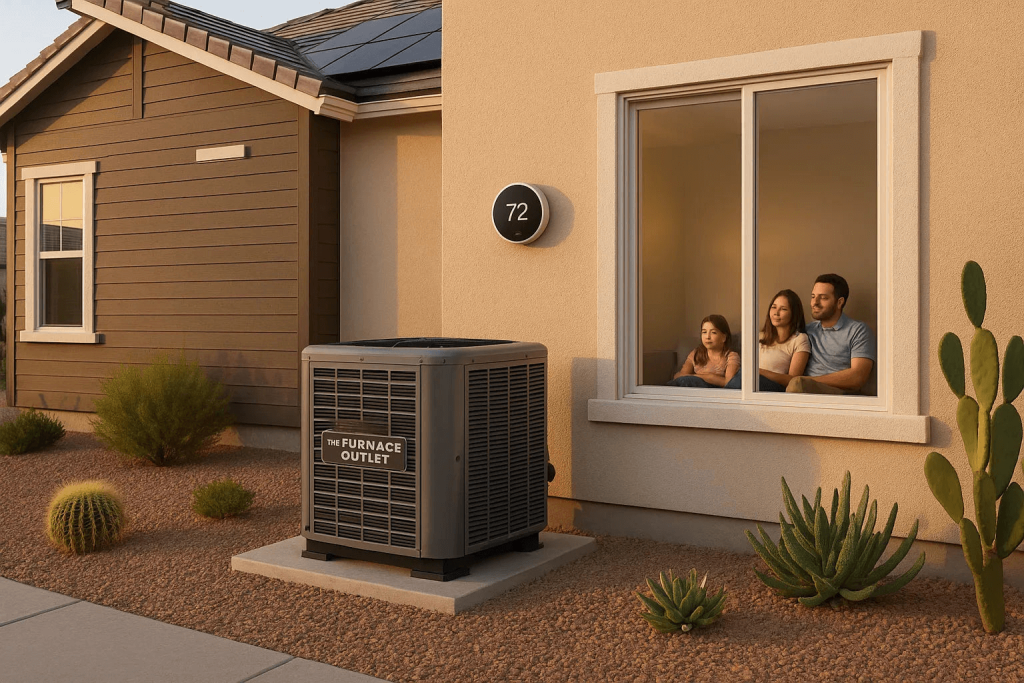Top Signs Your Furnace Needs Repair Before the Next Cold Front Hits Toronto
At the first gust of cold wind in late fall for the Toronto area, most homeowners will reflexively turn the thermostat up without a second thought. The warm air kicks on and all is well — until little signs begin to sneak in. Maybe the heat feels weaker than last year. Maybe the furnace takes a little longer to start. Or there’s a sound you never noticed before, but you tell yourself it’s “probably nothing.” For many homeowners, that moment — the feeling that something is a bit off — is the first warning their furnace is quietly asking for help. The tricky part is that furnaces rarely fail overnight. They slowly decline before a breakdown, and by the time symptoms become obvious, repairs are usually more expensive and urgent.Why These Early Clues Matter (Especially in Toronto)
Toronto’s winters are long and unforgiving. Because furnaces here run more frequently than in milder cities, small mechanical issues snowball much faster. A weak blower in November can become a fully failed ignition by January. A slightly clogged airflow system early in the season can push the unit into dangerous overheating during peak usage. That’s why catching early warning signs matters. It’s not just about comfort — it’s about preventing a mid-winter emergency when technicians are overloaded and wait times spike.The Most Common Furnace Problems Homeowners Experience
Even the healthiest heating systems wear down with age and seasonal workload. The issues below are the most common furnace problems Toronto technicians see right before breakdowns become serious. Many homeowners start searching for common furnace problems when they notice slow or weak performance but don’t realize they’re already in the early failure stage.- Clogged or restricted air filters
- Weak or malfunctioning blower motor
- Faulty igniter or pilot instability
- Cracked heat exchanger (safety risk)
- Thermostat miscalibration
- Vent blockage or flue obstruction
- Dirt buildup inside burners

The Top Signs Your Furnace Needs Repair (Before It Fails Completely)
Most homeowners wait too long to address furnace issues because the system technically still “turns on.” Unfortunately, that’s exactly how furnaces mask deeper trouble — they can continue running poorly for weeks before shutting down. This is when people begin Googling “signs your furnace needs repair” or “furnace troubleshooting in Toronto”, often after the symptoms have already been around for a while. The most important warning signs include:- New rattling, humming, or grinding noises
- Furnace flame turning yellow instead of blue
- A burning, metallic, or electrical smell
- The thermostat needing frequent adjustment
- Sudden or unexplained heating bill increases
- Furnace cycles on, but the home still feels cold
Soft CTA (Gentle Encouragement)
If you’re already noticing more than one of these red flags, this is the ideal stage to schedule a quick professional check — before winter demand spikes. (It’s easier, faster, and more affordable to correct issues early than after a full breakdown.)When These Clues Move From “Annoying” to “Urgent”
Some symptoms are harmless at first, like mild airflow changes or a slightly slow ignition. But when the furnace starts shutting itself off, producing discoloration in the flame, or releasing persistent odors, it’s protecting itself from a larger failure. At this point, homeowners usually aren’t dealing with a comfort issue anymore — they’re dealing with a safety and reliability issue. Because Toronto winters hit fast and hard, the timeline between “annoying” and “urgent” can be short. A neglected furnace can become unstable faster than most people expect, especially once the temperature consistently drops below freezing.When DIY Stops Working and It’s Time to Call a Professional
Some small furnace issues can be safely checked at home. Things like replacing the filter, resetting the thermostat, or ensuring vents aren’t blocked are great first steps. But when the symptoms go beyond that, it’s important to stop guessing and call an expert. You should call a professional if:- The furnace keeps shutting off mid-cycle
- You smell burning, metallic, or electrical odors
- Your CO (carbon monoxide) alarm starts chirping
- The flame turns yellow instead of blue
- There are grinding or thumping sounds inside
- Airflow remains weak even after filter changes
Why Timing Matters More in Toronto
Toronto’s cold fronts arrive fast — often catching homeowners by surprise. A furnace that “mostly works” in November can easily stop working altogether by January. Once temperatures plunge, even minor airflow or ignition issues become full system failures. Here’s why timing matters:- Cold air increases system strain with longer run times
- Electrical and gas components expand and contract faster under stress
- Cracked heat exchangers develop from consistent overuse
- Service availability becomes limited once deep winter starts
The Role of Preventative HVAC Maintenance
Routine furnace care is the most effective way to avoid emergency calls later. Homeowners who book regular HVAC maintenance Toronto are essentially locking in efficiency, safety, and comfort all winter long. During a maintenance visit, technicians will:- Inspect burners and ignition for stability
- Test electrical and gas valve operation
- Clean or replace air filters
- Check heat exchanger integrity
- Clear flue pipes and vents
- Lubricate fan motors and bearings

Secondary Clues Your Heating System Is Struggling
Sometimes the furnace isn’t the only place showing distress — your home starts sending signs too. Subtle environmental changes often reveal deeper airflow or circulation issues. Look out for:- Dry or overly humid indoor air
- Rooms that heat unevenly or cool too fast
- A faint burnt smell when heat first turns on
- Dust accumulation even after cleaning
- Windows fogging more often than usual
Common Mistakes Homeowners Make
- Waiting until the furnace stops working completely
- Ignoring strange noises or smells
- Skipping yearly maintenance visits
- Blocking vents with furniture or décor
- Trying unsafe DIY electrical or gas fixes
External Recommended Resource
For safety and regulatory information, homeowners can refer to the Ontario Energy Board Furnace Safety Guide — a credible, government-backed resource that helps ensure your home heating system meets Ontario’s safety and efficiency standards.
FAQs About Furnace Repair in Central Ontario
Answers to Common Questions About Your Heating, Cooling, and Indoor Air Quality Systems
1. How early should I book furnace maintenance before winter?
Ideally, book before the first major cold spell — late September or early October. That’s when technicians can still schedule preventive tune-ups without delay.
2. Is it normal to smell something burning when I first turn the furnace on?
A faint dust burn-off smell at the start of the season is common. However, persistent or metallic odors mean something is overheating or burning inside the system.
3. Why does my furnace keep turning off before the house is warm?
This is called “short cycling.” It usually means ventilation problems, ignition issues, or sensor malfunctions. Left unchecked, it can damage the heat exchanger.
4. Can uneven heating damage the furnace?
Yes. If your system is constantly overworking to balance temperatures, it adds wear and shortens the furnace’s lifespan.
5. What’s the biggest mistake Toronto homeowners make with furnace care?
Waiting until mid-winter to call for help. By then, smaller issues have already escalated, and emergency appointments are harder to get.
Keep Your Home Safe and Warm This Winter
Don’t wait until your furnace breaks down in the middle of a Toronto cold front. A quick seasonal check-up can make the difference between a cozy winter and an unexpected emergency.
If your furnace has been showing early warning signs — noises, smells, or weak heat — it’s time to take action.
Keep your home safe and warm — schedule your inspection today.
Regular care from trusted professionals ensures efficiency, reliability, and safety all season long — so you can focus on enjoying the warmth, not worrying about it.





